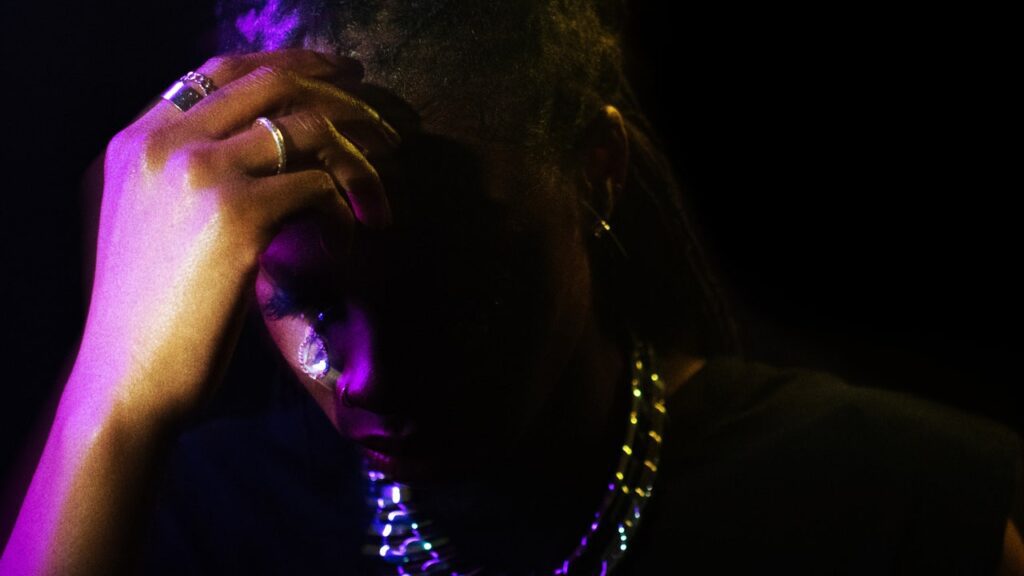
Even when she’s slipping between vantage points and historical perspectives, Haviah Mighty maintains a strict sense of focus. On “Snowfall,” the opener to her latest album, Crying Crystals, she vaults between first- and second-person narration as she tries to make sense of a failed relationship. The nameless lover she once dreamed of picking out “French oak doors” with is ready to bail at the first sign of choppy waters, and Mighty raps to her with a suppressed croak: “You the type that don’t believe in love deep down/Once the lust died down, I ain’t seen you ever since.”
You can hear the level-headed swag of Young M.A battling it out in her head with Drake at his most treacly, an interplay channeled in her voice: measured yet crushed at the prospect of failure. “Snowfall” doesn’t have the macrohistorical ambition of a song like “Thirteen,” a standout from her Polaris-winning 13th Floor, an album that charted the history of North American slavery through the signing of the 13th Amendment and beyond. But it takes a similar narrative approach. Both songs leap between the perspectives of “I” and “you” in an effort to live within the story. Mighty’s charismatic writing guides us through the switch-ups.
Crying Crystals’ subject matter is less wide-reaching than that of 13th Floor and the 2021 mixtape Stock Exchange. Instead, Mighty brings her fearsome skill as an MC and narrator to an account of personal growth and acceptance through every stage of a deteriorating relationship, finding autofictional spectacle in inner turmoil and outer conflicts. Sometimes, like on the second verse of “Lil Baby,” she’s depressed and, instead of taking the pills her doctor prescribed, she throws herself into fleeting rebounds. She refers to a “betrayal” but also admits she’s plenty toxic herself. On “Boundaries,” the emotional abuse she inflicted on her partner summons feelings of guilt that quickly explode into arguments. The drama is as messy as anything on Love Island, but Mighty gives dimension to petty spats by honing in on the hurt and neglect lingering in the background. On “Main Character,” pleas for affection (“You ain’t a work of art, you the gallery”) give way to molly-fueled ragers when fences can’t be mended. She brings equal confidence to moments when she’s losing herself in new love (“Zoom Zoom”) or tearing down a sneaky link who oversteps: “I ain’t make you bathe in my piss enough,” she growls on “All the Time.”
As a Canadian with Jamaican and Bajan ancestry who grew up enthralled by battle rap, Mighty brings a love for hip-hop and diasporic sounds that shines through Crying Crystals’ eclectic beats. The Jersey club patterns and pastel synths on “All the Time” sit comfortably alongside the new-age riddim Mighty conjures on the self-produced “Zoom Zoom” and the lush amapiano pulses of the sultry “Room Service.” Some of the more traditional rap beats—the moody guitar strums and 808s of the Tony Parker-produced “Manifest It,” the faded violins and thumping drums of the Bizness Boi-produced “Honey Bun”—sound unseasoned compared to the deep grooves that dominate the album’s back half. But in Mighty’s hands, these styles blend like different shades of the same color. She’s no longer seeking to bridge broad political subjects and autobiography: This time, she’s telling a simple story of love, acceptance, and broken hearts in vignettes. She makes it sound as cathartic and natural as deleting photos of your ex.
